
In the ever-changing world of cryptocurrencies, protecting your digital assets is essential.
Cryptocurrency wallets are vital in securing your funds, offering users a secure and convenient way to store, manage, and transact with their cryptocurrencies and granting you access to the decentralized financial landscape.
Hardware wallets have garnered extensive popularity among these wallets as a result of their robust security features and user-friendly interfaces.
In this article, we will examine cryptocurrency wallets, Cryptocurrency hardware wallets, the rationale behind Cryptocurrency hardware wallets, and the six best options to consider.
Understanding Cryptocurrency Wallets and Cryptocurrency Hardware Wallets
Cryptocurrency wallets are digital instruments enabling users to securely store, transmit, and receive digital currencies.
The private credentials required to access and administer your cryptocurrency possessions are stored in these purses. Private keys are the cryptographic keys that grant you access to and ownership of your funds.
There are various varieties of cryptocurrency wallets, such as online and offline software wallets and hardware wallets.
What are Cryptocurrency Hardware Wallets?
Cryptocurrency hardware wallets are physical devices designed to hold your digital assets’ private keys securely. These wallets offer higher security than software wallets because they store private keys offline, away from potential online threats such as hackers and malware.
A cryptocurrency hardware wallet resembles a compact USB device and operates independently of your computer or mobile device.
It generates and stores your private keys in-house, ensuring they are never exposed to the internet or any other external network.
This isolation substantially reduces the risk of unauthorized access and robbery, making hardware wallets one of the most secure ways to store and manage cryptocurrencies.
Users must input a PIN or passphrase to access the funds in a hardware wallet, adding an extra layer of protection against physical theft. Some hardware wallets additionally provide a “recovery seed” – a series of arbitrarily generated strings that serve as a backup.
If a hardware wallet is lost, stolen, or damaged, the recovery seed can be used to regain access to the funds on a new device.
By providing “cold storage,” hardware wallets are ideally suited for the long-term storage and protection of significant amounts of cryptocurrencies.
Cold storage is the practice of storing private keys offline, away from any internet connection, making them less susceptible to cyberattacks and the inherent vulnerabilities of online systems.
Hardware wallets for cryptocurrencies provide users with the peace of mind that their digital assets are safe from online threats and can only be accessed physically with the wallet in hand and the correct PIN or passphrase.
Why Should You Consider Cryptocurrency Hardware Wallets?
Here are some reasons why you should consider Cryptocurrency hardware wallets:
- Unmatched Safety
- Security Against Hacking and Phishing
- Offline Storage
- User-friendly Interaction
Unmatched Safety
Hardware wallets provide the utmost security for your digital assets. Since private keys never leave the device, they are impervious to online attacks. This reduces the risk of unauthorized access and theft significantly.
Security against hacking and phishing
Online exchanges and digital wallets are susceptible to malware and fraud. Utilizing a hardware wallet eliminates these dangers, as your private keys are isolated from the internet.
Offline Storage
Hardware wallets function offline, safeguarding your assets even if your computer or mobile device is compromised. This “cold storage” method makes them ideal for long-term investments and protecting significant amounts of cryptocurrency.
User-Friendly Interaction
Hardware wallets are designed to be user-friendly despite their sophisticated security features. Even novices can effectively manage their finances with explicit instructions and user-friendly interfaces.
Top 6 Cryptocurrency Hardware Wallets to Consider:
Here are the leading six Cryptocurrency hardware wallets to consider:
- Ledger Nano X
- Trezor Model T
- Ledger Nano S
- COLDCARD Mk4
- Blockstream Jade
- Ellipal Titan
Ledger Nano X
Ledger Nano X is a hardware crypto wallet that allows you to manage, exchange, and purchase a variety of cryptocurrencies. It supports more than 5500 currencies.
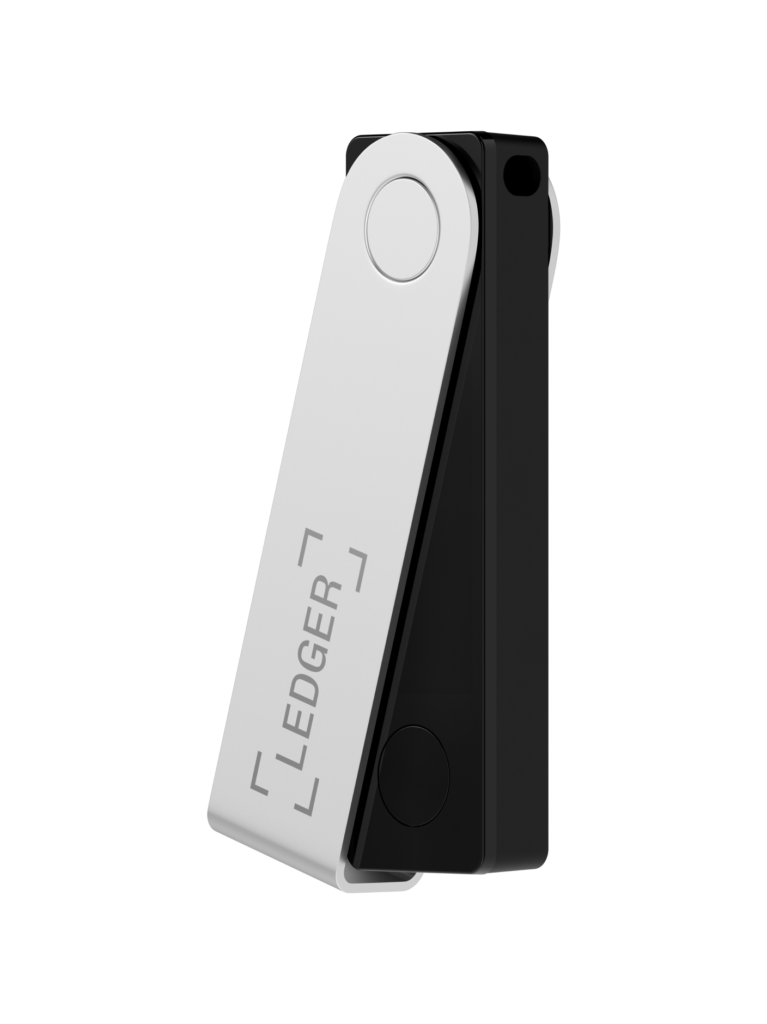
Ledger Nano X is a Cold Wallet that is accessible globally. This cryptographic hardware wallet measures 72 mm, 18.6 mm 11.75 mm. It is made of plastic and stainless steel with a burnished finish. It includes a 100mAh Lithium-ion battery that provides 8 hours of battery life.
This Bitcoin wallet is equipped with USB-C and Bluetooth connectivity. It has an extensive knowledge base and offers email and live chat support. It provides support for layering and blockchain for ERC20 tokens.
In addition, Ledger Live software is included to verify your cryptocurrency balance and transmit and receive currencies.
Trezor Model T
Trezor Model T is a cryptographic hardware wallet that enables access to third-party exchanges, such as CoinSwitch and Changelly, via the Trezor web interface.
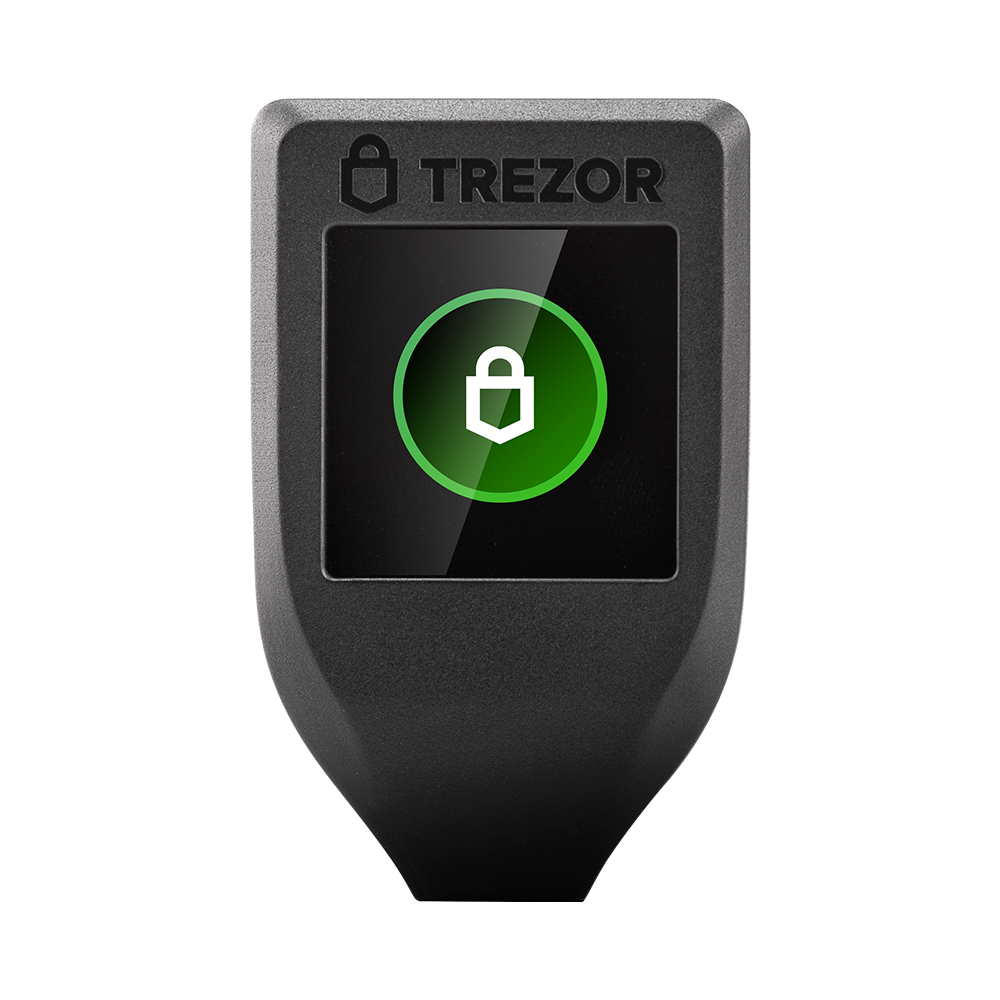
It is one of the finest hardware cryptocurrency wallets that offer a touch screen for novice cryptocurrency traders, making it easier to use than its predecessor.
The Trezor Model includes one USB-A cable and one USB-C cable. This digital wallet supports smartphone and desktop computer connections.
It is one of the finest hardware wallets that supports over 1800+ cryptocurrencies, such as Ethereum, Bitcoin, Ripple, HEX, etc.
Trezor Model T is also a frozen wallet that is globally supported. It includes exchange and is compatible with Linux, Android, macOS 10.8+, and Windows 10+. It measures 64 mm by 39 mm by 10 mm.
These hardware wallets do not support staking cryptocurrencies. You can obtain assistance via their wiki page, FAQ section, or by sending an email directly to customer support.
For enhanced security, the premier device from Trezor features a touchscreen interface, passphrase protection, and a recovery seed card.
Ledger Nano S
Ledger Nano S is a hardware wallet supporting over 1800 cryptocurrencies. This cryptographic hardware wallet measures 104mm by 58mm by 5mm and weighs 16.2g.
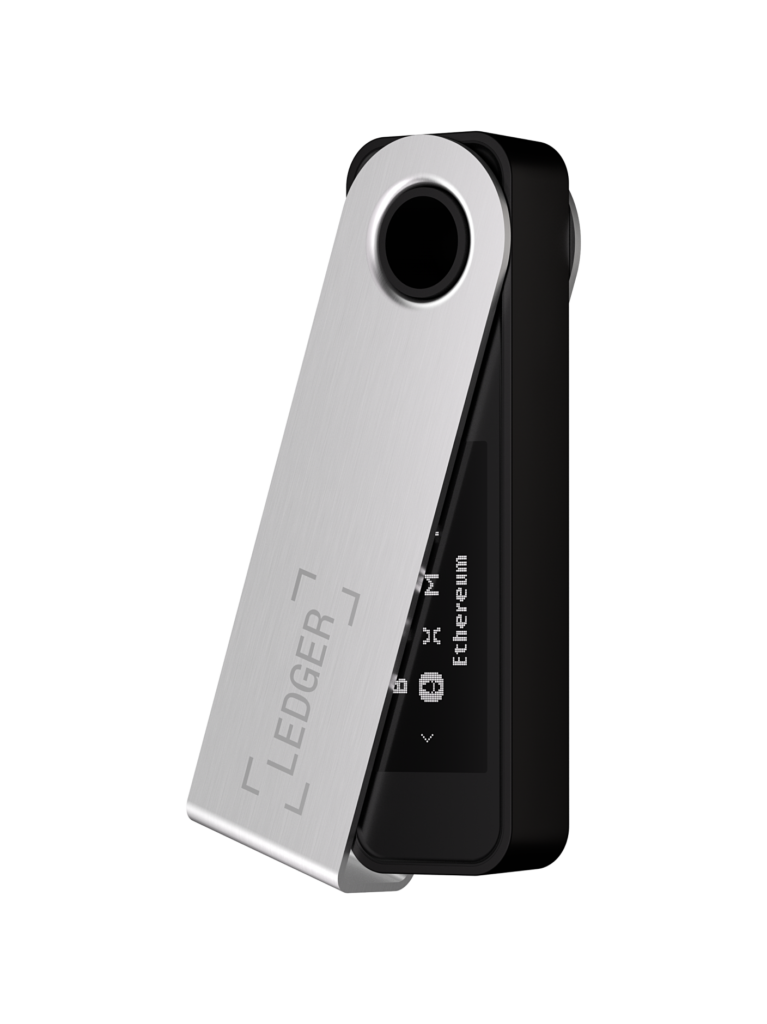
It includes a powerful 100mAh battery. Its packaging includes one chilly wallet, one USB cable, three recovery pages, and a keychain strap.
Ledger Nano S supports BTC, ETH, XRP, DOT, LTC, and TRX, among other cryptocurrencies. This chilly wallet is available in every country worldwide. It offers mobile applications for Android and iOS.
It supports Windows 8.1 and later, macOS 10.14 and later, Android 7 and later, and Linux.
Integration with software wallets such as Electrum, Bluewallet, Metamask, Wasabi, and Sparrow is simple. It offers mounting support. You can obtain assistance from their knowledge-base page, as well as via live contact and email.
COLDCARD Mk4
As a specialized Bitcoin cold storage wallet, the COLDCARD Mk4 has fewer features than Ledger or Trezor devices, but it stores your Bitcoin private keys securely offline.
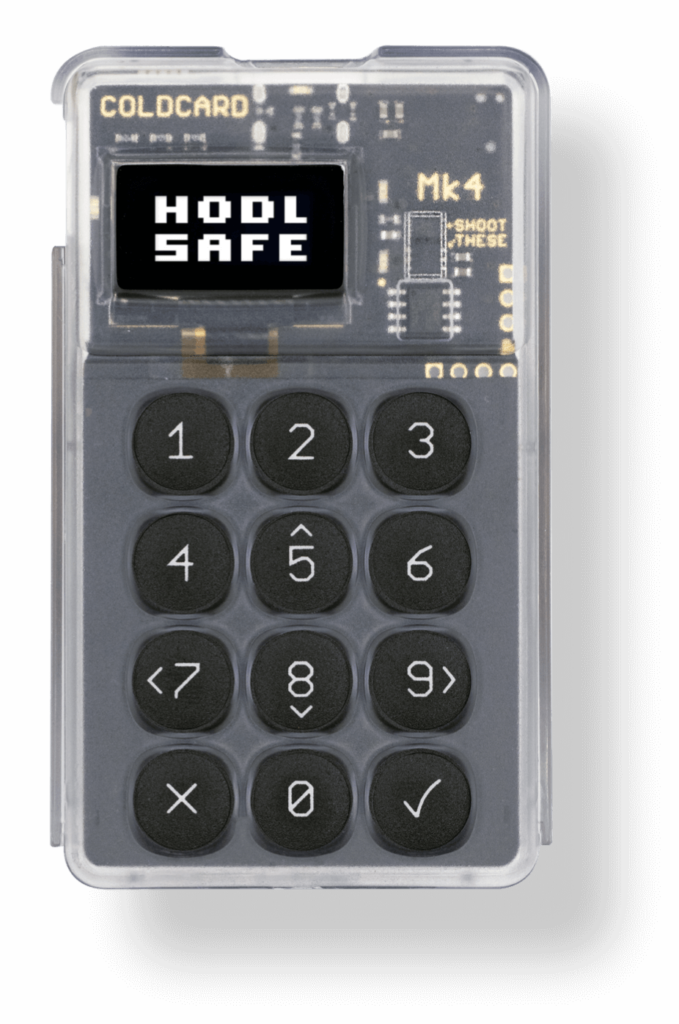
The cypherpunks, who advocate for privacy-enhancing cryptography, designed the COLDCARD Mk4 for Bitcoin maximalists.
Unlike Ledger hardware wallets, which use a single Secure Element chip – the same type of chip found in passports and credit cards – the COLDCARD Mk4 protects your Bitcoin private keys with two Secure Element chips.
Using the Sparrow Wallet desktop software and a microSD card, you can send and receive Bitcoin without connecting to your COLDCARD Mk4. If you wish to transfer data this way, you must buy a microSD card adapter for your computer.
Jade Blockstream
Blockstream is involved in numerous Bitcoin-related undertakings, ranging from mining to developing the Liquid Network – a layer-2 on Bitcoin for the issuance of digital assets.
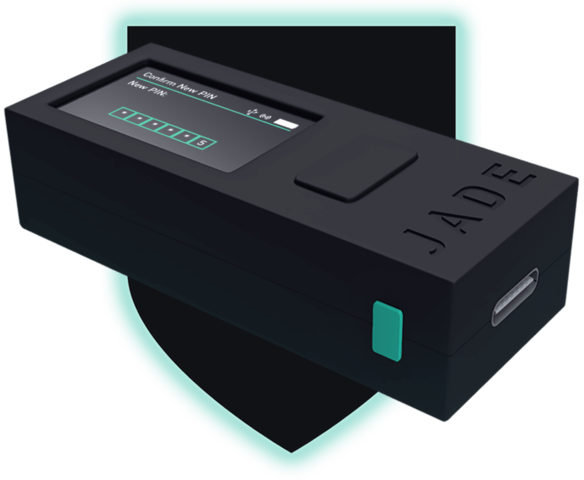
Given its extensive experience with the Bitcoin network, it is unsurprising that the Blockstream Jade is among the most esteemed hardware wallets in the Bitcoin community.
Like another popular Bitcoin hardware wallet, the COLDCARD Mk4, the Blockstream Jade is a secure Bitcoin cold storage wallet with open-source code and multisig support.
Ellipal Titan
Elliptical Titan is a cold wallet that provides complete network isolation via an air gap. It is constructed with no online components and has no cryptocurrency application support interfaces.
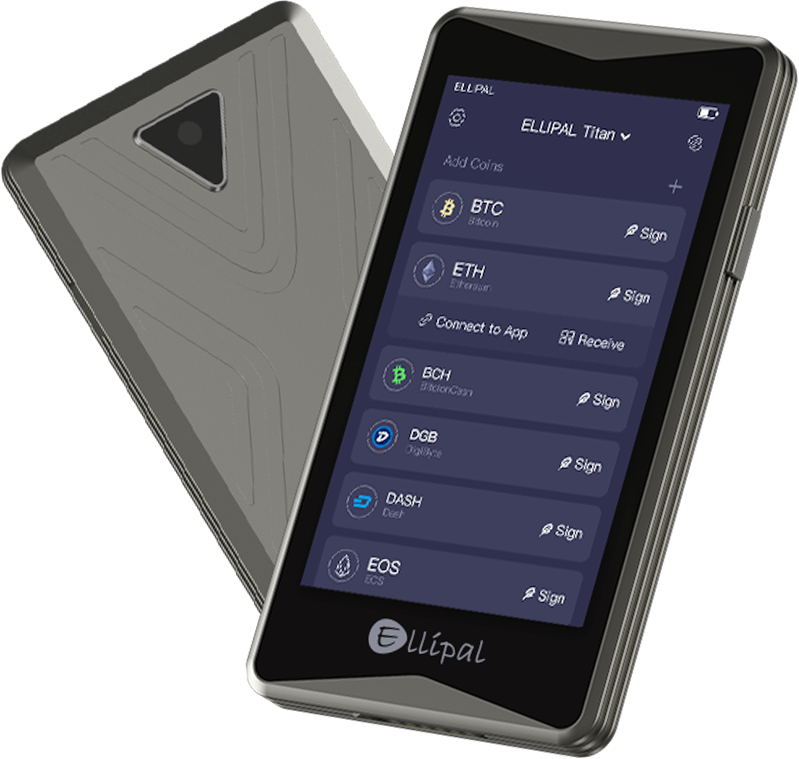
ELLIPAL Titan supports BTC, ETH, LTC, XRP, USDT, TRX, etc. It is a Cold Wallet compatible with Mac OS X, Windows, Android, and iOS.
Its measurements and weight are 112mm x 65mm x 18mm. It is composed of aluminum alloy. It has a battery capacity of 1400 mAh. It’s a FIDO-approved hardware wallet.
It is one of the most secure hardware wallets against remote and online attacks. It is also 100% offline and safe from online attacks, and it supports over 10,000 tokens. One disadvantage is the need for optimal customer service.
Conclusion
Cryptocurrency hardware wallets are indispensable for managing your digital assets securely. Their unrivaled security, protection from online threats, offline storage capabilities, and user-friendly interfaces make them a wise choice for cryptocurrency investors.
By contemplating these best six hardware wallets listed above, you can ensure the security of your cryptocurrency holdings and confidently explore the immense potential of this thrilling digital domain.





